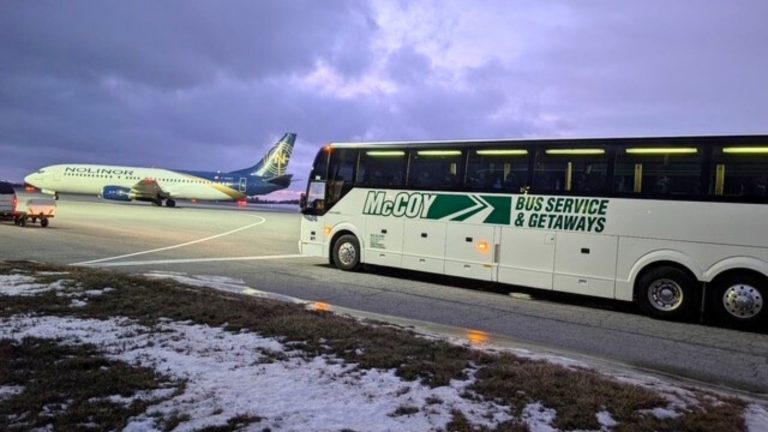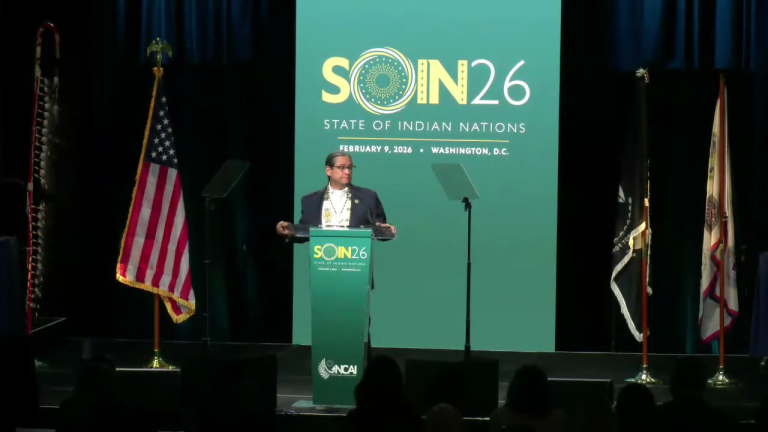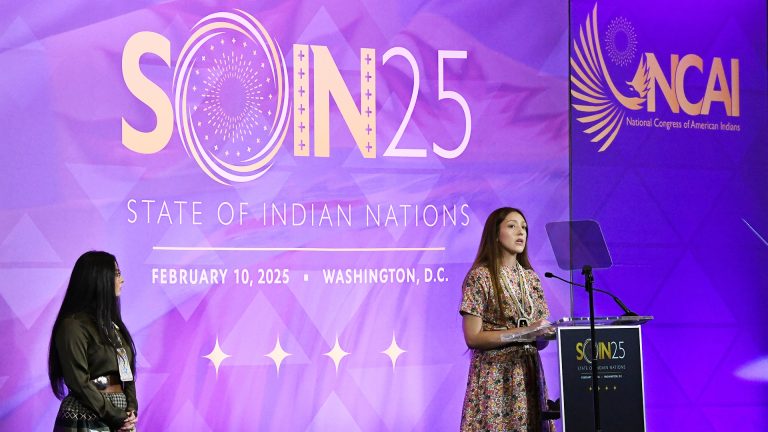By Christine Trudeau
Despite record-breaking Native voter turnout for the 2018 midterm election in North Dakota, tribes and voting rights advocates remain concerned about a controversial voter I.D. law. State officials show no sign of changing the law, but the issue received added attention at a U.S. House of Representatives committing hearing in the state.
The 2020 election is a year and a half away and there is no indication North Dakota lawmakers will make any changes to the voter I.D. law that threatens to exclude thousands of Native and rural voters. Last fall tribes and voting rights organizers had just a matter of weeks to help voters come into compliance. The effort to counter the law galvanized Native voters, drawing record numbers to polls. But newly elected Rep. Ruth Buffalo warned in a recent congressional committee hearing on the Standing Rock Sioux Reservation that this is not a long term fix.
“The true history of our people needs to be told,” Buffalo said at the field hearing for the elections subcommittee for the House Administration Committee. “Comments saying, you know, ‘well, turnout was great wasn’t it?’ That is inappropriate and unacceptable because that’s almost saying like, ‘we mandated your children to be sent to the boarding schools to become civilized but they’re educated now aren’t they?’ It’s the same thing and it’s inappropriate but it’s due to a lack of education truly of who we are in which land we stand on today.”
To help members comply with the law, tribes incurred a significant cost printing thousands of tribal IDs listing physical addresses. The tribes waived the fee to tribal citizens. Subcommittee Chairwoman Marcia Fudge (D-OH), who represents a majority black district, compares the North Dakota law to one of the historically reviled strategies to prevent people of color from voting.
“By requiring that people go out and buy an I.D. that they don’t need for any other reason, but to vote; they don’t need it to drive because they don’t drive,” Fudge said. “They don’t need it for any other reason. So, in fact, the state has created a poll tax on your reservations and all of the people who live in them.”
The subcommittee plans to release a report next fall, in the hopes to update a formula so protections provided by the Voting Rights Act can be implemented in states like North Dakota, with a “fully functioning preclearance.”
Lawsuits to overturn the current voter I.D. law are ongoing and representatives from non-profit groups like the Sacred Pipe Resource Center say they remain committed to providing resources for Native voters.
“Part of this ongoing effort I think to help people understand how the voting system works and how important their vote is and how important it is for them to be vocal about what they want and what our needs are as native people and as tribal people,” said Sacred Pipe’s Executive Director Cheryl Kary. “And so that’s going to that’s kind of be our effort in the in this off year.”
This story is a joint project with National Native News, Prairie Public Broadcasting and Solutions Journalism Network looking into how a potential setback for tribal members in North Dakota turned into a win for tribes, voters and Native candidates.





Looking from England as a councillor I do not understand why you need an ID. Here we just need to take the voting paper and check in to get the ballot paper to fill in our choice/s or if we do not take the paper give our address. Good luck. Siv